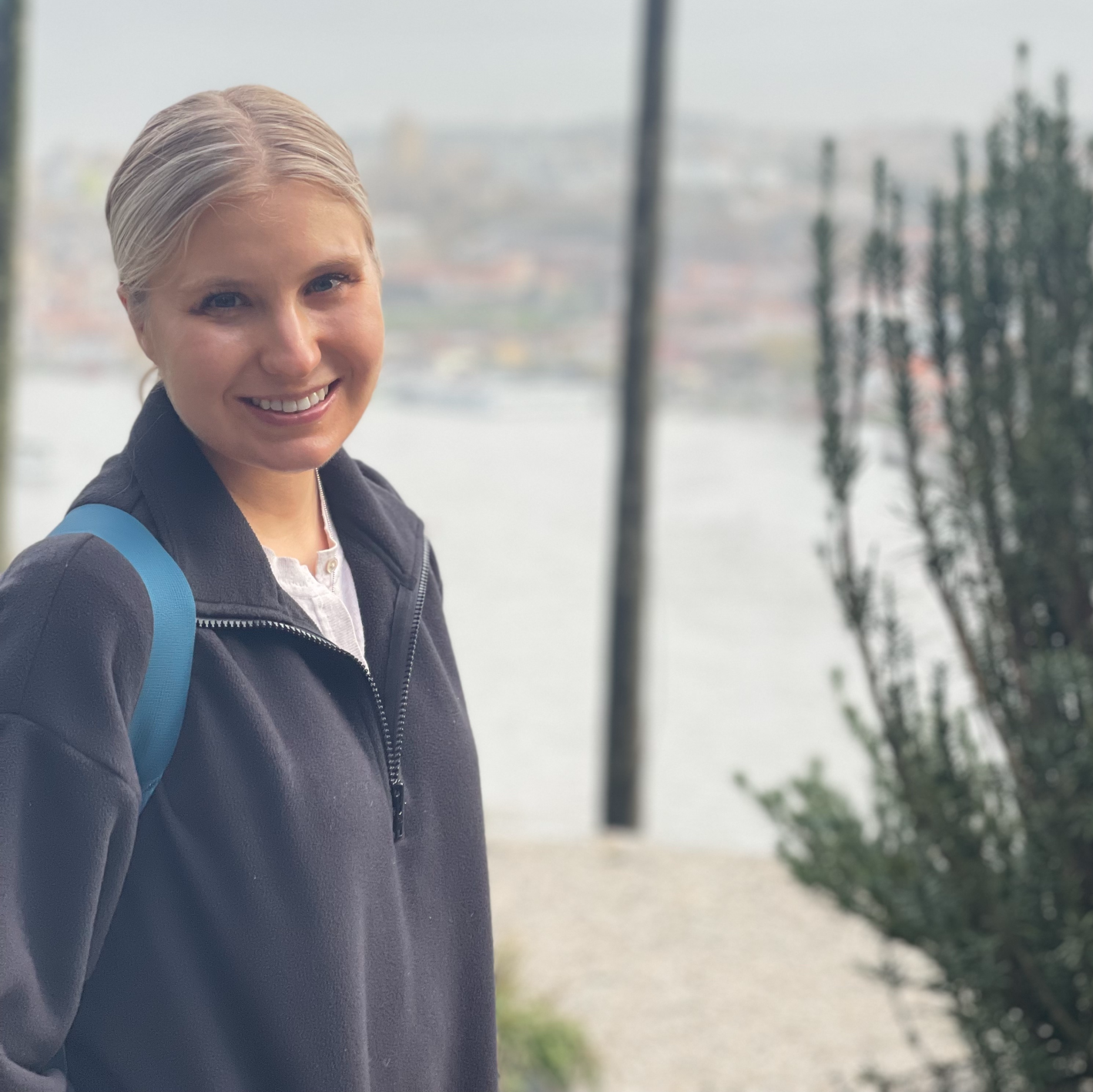Graduate nursing studies are a 'stepping stone that will help you gain a broader, more innovative perspective as a health care professional.'
13 December 2022

Jessica Katerenchuk: Photo supplied.
Jessica Katerenchuk graduated from the Faculty of Nursing Masters of Nursing program, leadership stream, with a specialization in Ageing in June 2022. Katerenchuk entered graduate studies to learn how to systemically address chronic health issues — mental health and gaps in oncology supportive care — that she observed as a child raised in a rural area and throughout her undergraduate nursing education.
Katerenchuk shares with us some of the challenges she faced throughout her graduate studies, how the new Master of Nursing curriculum prepared her to be a nurse leader in her field and advice for those considering pursuing graduate nursing studies.
What was the biggest challenge you faced?
The biggest challenge I faced completing my graduate education was accepting a concept we were taught in undergrad, but I didn’t fully appreciate leaving school. To ‘be’ a nurse doesn’t always require being at the bedside. Nursing exists beyond the hospital setting in contexts such as research and policy, where long-term changes in health and well-being can be initiated and sustained. An understanding I developed upon completing my graduate studies is the importance of embracing this notion of change within health care itself and throughout one’s career.
How is the new curriculum shaping you to be a nurse leader in your field?
The mix of core courses in research and policy development has helped me holistically understand system issues and identify solutions within my practice area. For example, by taking a course focused on Ageing, I learned how to apply a specific Ageing model to investigate the issue of mental illness in rural areas affecting older persons and develop policy recommendations in a review, which I am in the process of co-publishing.
How do graduate studies shape your nursing career?
Graduate studies inspired my passion for supporting and expanding the nursing workforce. During my graduate studies, I completed my internship at the Rural Health Professions Action Plan, where I worked on projects to support the retention and recruitment of health professionals in rural area. The program skills that I developed over the past two years now help me in my new role at the International Network of Nurse Leaders and in a rural emergency where I am working on strategies to retain nurses in the profession.
What comes next for you in your career/academic journey?
I am currently working on publishing two pieces of research I completed during my Masters. I am also working in a rural emergency in my home community of Smoky Lake while balancing my role on my family’s grain farm in northern Alberta. I hope to complete more education at the University of Alberta this Fall or the next to strengthen my ability to address the health and health care related issues that I examined throughout my Masters.
What advice would you have for undergraduate students considering pursuing graduate studies?
Take the leap and apply for your graduate studies. When I talk to undergraduate students who want to apply but are hesitant, I recommend just taking the chance and submitting the application. There is no right time to take your Masters or further your education; it differs for each person. However, I believe it was a stepping stone that was definitely worth it and will help you gain a broader, more innovative perspective as a health care professional.
Revive your passion for nursing by pursuing your master’s or doctorate degree. Gain the credentials needed for positions in advanced nursing, education, leadership and/or research training while you continue to work. Apply for Fall 2023: uab.ca/ngp